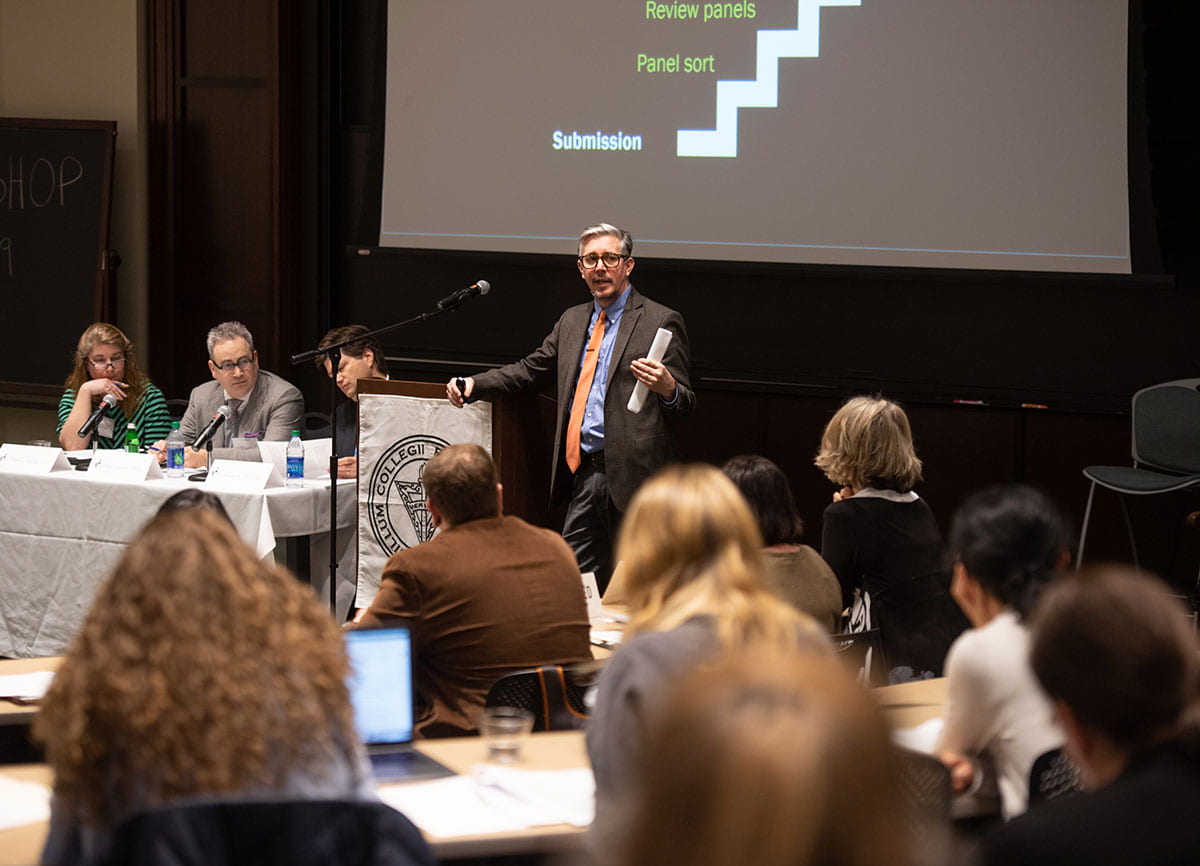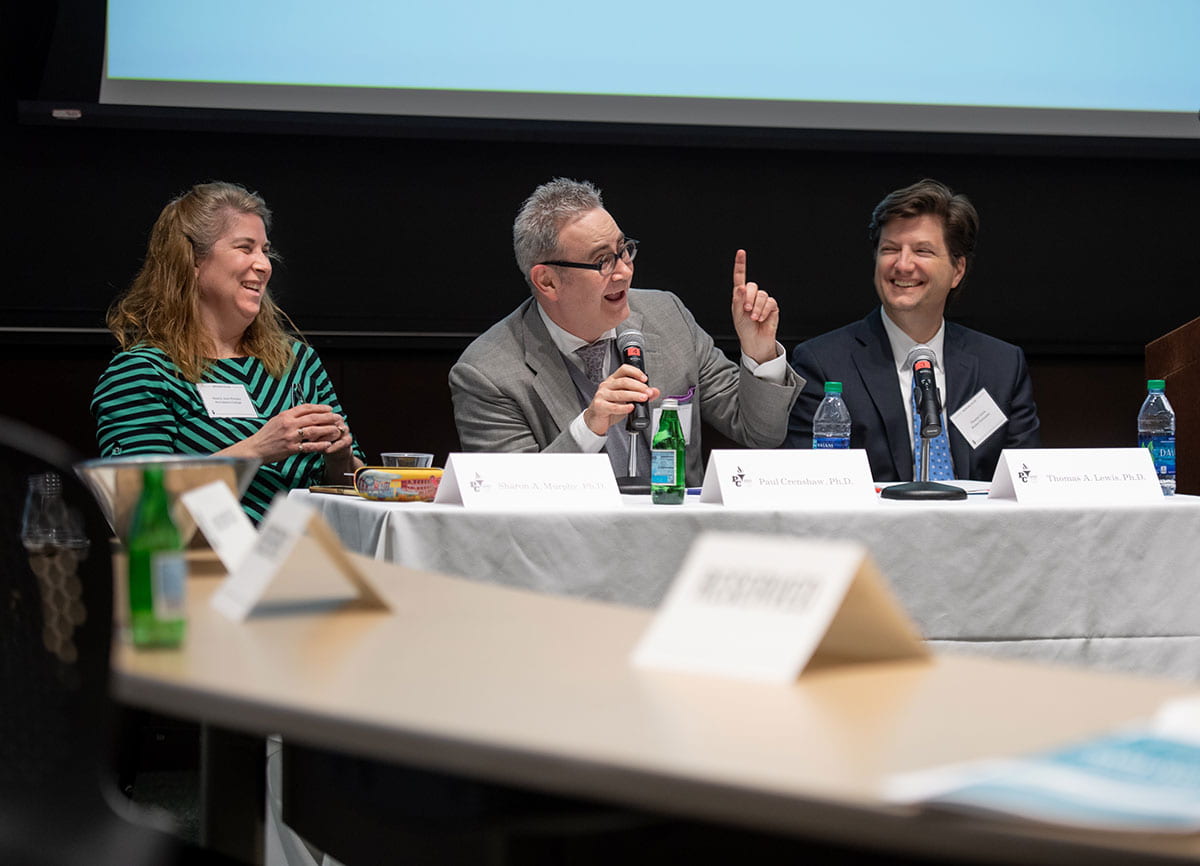College welcomes NEH for humanities-based faculty workshop

By Ealish Brawley
Providence College hosted the National Endowment for the Humanities for the first time in a faculty development workshop that brought more than 100 faculty members and administrators from 25 regional colleges and universities to campus.
This prestigious opportunity was made possible by U.S. Sen. Jack Reed, D-R.I., a longtime champion of the humanities, who advocated for the NEH to visit Rhode Island. PC’s Office of Sponsored Projects and Research Compliance, along with the School of Arts & Sciences and the Office of Public Affairs, Community and Government Relations, co-sponsored the grant-writing workshop, which was held in the Ruane Center for the Humanities.

College President Rev. Brian J. Shanley, O.P. ’80 underscored the importance of the humanities in opening remarks to the group.
“There is a deeper purpose to education, and that deeper purpose is meaning,” he said. “We educate our students to live meaningful lives. And the humanities are central to a meaningful life. It is through art, it’s through history, it’s through philosophy, theology, literature — all of the things that we study in the humanities — that we find out what the meaning of our lives is. And it is an encounter with the humanities that gives us sources of meaning, potentially, for our own lives.”
Reed then expressed his support for the work being done in the humanities by those in attendance.
“I’m pleased to see so many faculty members representing a diversity of institutions in our state and region here today,” said Reed. “You do the vital work of encouraging and teaching the subjects that are central to understanding our history, our nature, our potential contributions to the human spirit. We all need that knowledge, that foundational knowledge, that the humanities provide. It is vital to our democracy. Indeed, our democracy depends upon those insights that the humanities give us.”
The grant-writing workshops followed. Dr. Geoff Burrows, senior program officer in the NEH’s Division of Research Programs, gave an overview of NEH grant programs and offered application tips. His presentation was followed by remarks by Logan Hinderliter, associate director of grants and partnership for the Rhode Island Council for the Humanities, who discussed RICH grant programs.
The second portion of the workshop featured a mock panel session in which the NEH’s peer review process was demonstrated by three reviewers: Dr. Paul Crenshaw, PC associate professor of art history; Dr. Sharon Ann Murphy, PC professor of history; and Dr. Thomas A. Lewis, co-deputy dean of the graduate school, associate dean of academics affairs of the graduate school, and professor of religious studies at Brown University.
The program concluded with closing remarks by the College’s Dr. Kris A. Monahan, director of sponsored projects and research compliance, and Dr. Joan R. Branham, professor of art history and associate dean of the School of Arts & Sciences.
“It was gratifying to see Providence College at the epicenter of faculty development in the humanities in New England,” said Branham afterwards, alluding to the strong turnout of regional higher-education representatives. “PC played a leading role in facilitating the advancement of scholarship in the humanities.”

Monahan was gratified by the response to the workshop and the opportunities it presented faculty and administrators. She noted that although the competition for NEH grant support is intense, three PC faculty members have been awarded grants in recent years.
Monahan was enthusiastic about the developing relationship with the NEH and its ability to encourage and support faculty scholarship at the College.
“We hope that faculty will see that Providence College is an ideal place to be a teacher-scholar and that the sponsored research and research compliance office is here to support them in their pursuits,” she said.





